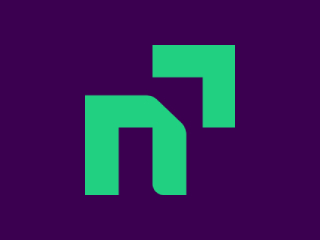OpenAI DevDay 2025: From ChatGPT Apps to AgentKit for Developers, Here's Everything You Need to Know
OpenAI is now letting users work with third-party apps and complete certain tasks without leaving ChatGPT’s interface.

Photo Credit: Reuters
OpenAI says Codes is now generally available to eligible users
OpenAI DevDay 2025 was hosted by the company on Monday, and multiple announcements for both end-users and developers were made. Among them, the biggest announcement was adding a new capability in ChatGPT that will allow users to work with third-party apps such as Canva and Spotify without leaving its interface. The San Francisco-based artificial intelligence (AI) firm also introduced AgentKit, a developer-focused tool to build, deploy, and optimise agentic workflows. Additionally, the company also made GPT-5 Pro, Sora 2, and Sora 2 Pro available via application programming interface (API).
Everything Announced at the OpenAI DevDay 2025
ChatGPT Apps: Building on ChatGPT's agentic capabilities, OpenAI is now allowing software and services to connect to a new ChatGPT software development kit (SDK), which will then allow users to access these apps from the chatbot's interface. It will also let them complete certain tasks in these apps directly via text prompts.
Currently, users will be able to use Booking.com, Canva, Coursera, Expedia, Figma, Spotify, and Zillow in the chatbot. However, in the coming weeks, the company plans to add support for more apps such as DoorDash, OpenTable, Target, and Uber.
Apps SDK: Alongside ChatGPT apps, the company also released an open standard built on Anthropic's Model Context Protocol (MCP), dubbed Apps SDK. This will allow developers to build and test apps in ChatGPT. App submissions for publication will occur later this year.
OpenAI also plans to provide users with a directory to browse these ChatGPT-based apps. The company also promised to share details about the monetisation of these apps soon. Notably, the monetisation could also pave the way for ads on ChatGPT, which was reported last month.
Sora 2 and Sora 2 Pro in API: OpenAI has also made the Sora 2 and Sora 2 Pro AI models available via API. Sora 2 can generate videos in 1280x720p resolution, while Sora 2 Pro offers a resolution of up to 1792x1024p. Both models are capable of generating both landscape and portrait videos of up to 12 seconds duration. However, video input and image-to-video of real people is not supported at this time.
Notably, there are three variants available. The Sora 2 model is available at the price of $0.1 (roughly Rs. 8.8) per second of generated video, while the base Sora 2 Pro will cost developers $0.3 (roughly Rs. 26.6) for the same duration. Both of these models will generate videos with a watermark. To get watermark-free videos, devs will have to opt for the advanced Sora 2 Pro model, which charges $0.5 (roughly Rs. 44.3) per second of generation.
GPT-5 Pro in API: Alongside Sora, the GPT-5 Pro AI model is also available via API. The model uses more compute to think longer and provide more in-depth responses. The AI model is available in the Responses API and supports multi-turn interactions before responding to API requests. It is a fairly expensive offering with $15 (roughly Rs. 1,330) per million input tokens and $120 (roughly Rs. 10,650) for one million output tokens.
AgentKit for Developers: OpenAI describes AgentKit as a modular toolkit for building, deploying, and optimising agents. Developers can build an agent workflow, connect to large language models (LLMs), add tools support, add knowledge hubs, and even create voice-based agents.
Apart from this, Codex is now generally available, and the GPT-5 API requests are faster on the priority processing tier.
For the latest tech news and reviews, follow Gadgets 360 on X, Facebook, WhatsApp, Threads and Google News. For the latest videos on gadgets and tech, subscribe to our YouTube channel. If you want to know everything about top influencers, follow our in-house Who'sThat360 on Instagram and YouTube.
- Samsung Galaxy Unpacked 2025
- ChatGPT
- Redmi Note 14 Pro+
- iPhone 16
- Apple Vision Pro
- Oneplus 12
- OnePlus Nord CE 3 Lite 5G
- iPhone 13
- Xiaomi 14 Pro
- Oppo Find N3
- Tecno Spark Go (2023)
- Realme V30
- Best Phones Under 25000
- Samsung Galaxy S24 Series
- Cryptocurrency
- iQoo 12
- Samsung Galaxy S24 Ultra
- Giottus
- Samsung Galaxy Z Flip 5
- Apple 'Scary Fast'
- Housefull 5
- GoPro Hero 12 Black Review
- Invincible Season 2
- JioGlass
- HD Ready TV
- Laptop Under 50000
- Smartwatch Under 10000
- Latest Mobile Phones
- Compare Phones
- HMD Touch 4G
- Vivo V60e
- Lava Bold N1 Lite
- Samsung Galaxy F07
- Realme 15x 5G
- OPPO A6 5G
- Samsung Galaxy M07
- Xiaomi 17
- Asus Vivobook S16 (S3607QA)
- Gigabyte AORUS Master 16
- Samsung Galaxy Tab A11+
- Xiaomi Pad 8
- Xiaomi Smart Band 10 Glimmer Edition
- Xiaomi Watch S4 41mm
- Xiaomi Xiaomi TV S Pro Mini LED 55 2026
- Xiaomi TV S Pro Mini LED 65 2026
- Asus ROG Ally
- Nintendo Switch Lite
- Haier 1.6 Ton 5 Star Inverter Split AC (HSU19G-MZAID5BN-INV)
- Haier 1.6 Ton 5 Star Inverter Split AC (HSU19G-MZAIM5BN-INV)












